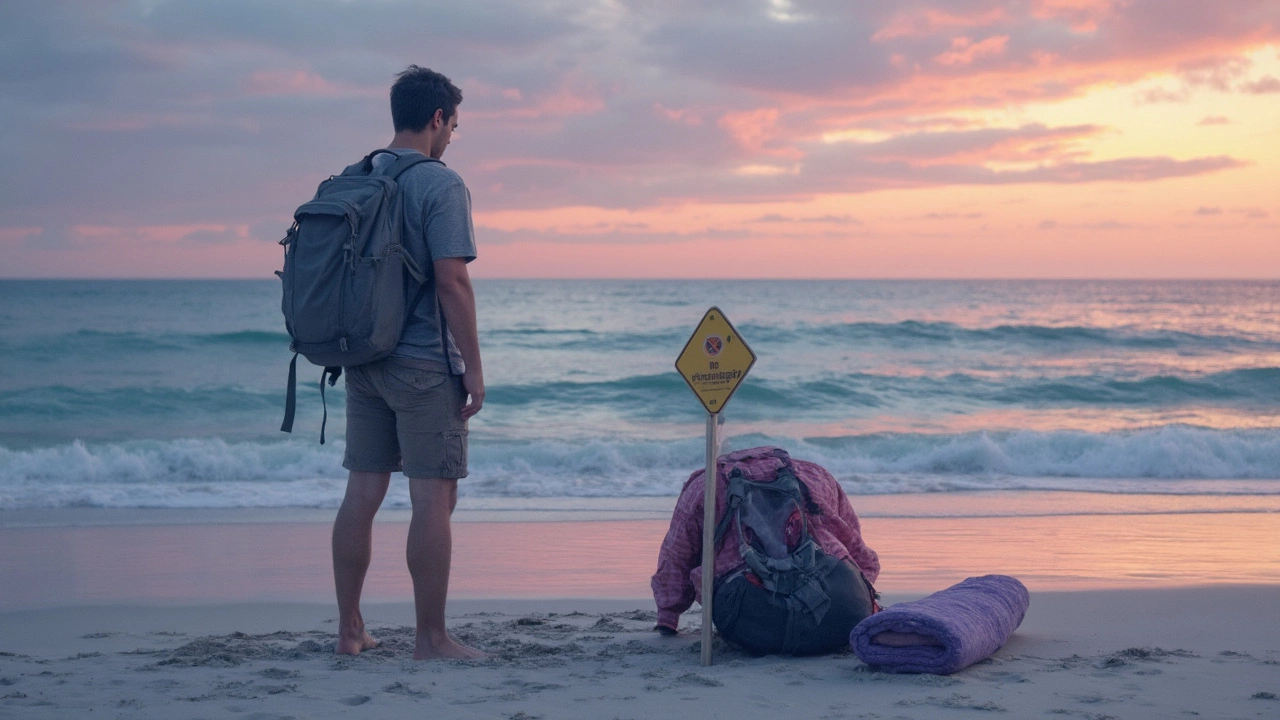Sleeping on Beach Florida: How to Camp Overnight Without Trouble
If you picture a night under the stars with waves lapping at your feet, you’re not alone. Many travelers want to spend a night on a Florida beach, but the rules can be confusing. This guide tells you where you can stay, what you need to bring, and how to keep things low‑key and legal.
Where You Can Sleep Legally
Florida doesn’t have a one‑size‑fits‑all rule for beach camping. In most state parks, overnight stays are allowed only in designated campgrounds, not on the sand. However, some public beaches let you park a vehicle and sleep for a few hours, especially if you’re inside a 24‑hour parking zone.
Look for signs that say “No Overnight Parking” or “Camping Prohibited.” If the sign is missing, treat the spot as a no‑camp zone until you verify otherwise. The safest bets are:
- Fort De Soto Park – offers a few beachfront sites you can rent.
- Melrose Beach – has a small area where you can park overnight for a short stay.
- North Beach (St. Petersburg) – allows 24‑hour parking in certain sections.
Always check the local city or county website before you arrive. A quick Google search with the beach name plus “overnight parking” will usually show the latest rules.
Essential Gear and Safety Tips
Sleeping on sand is different from a regular campsite. A good quality sleeping pad or an air mattress makes the ground bearable and keeps you dry. A tarp set up over the pad protects you from dew and early morning sand storms.
Bring a portable power bank, a headlamp, and a small fan if you expect warm nights. Pack a trash bag and leave the spot cleaner than you found it – Florida parks can hand out fines for littering.
Security matters too. Lock your vehicle, keep valuables out of sight, and use a cheap bike lock on your tarp if you’re staying in a car‑first setup. If you’re in a remote spot, let a friend know where you’ll be and set an alarm on your phone.
Weather can change fast on the Gulf or Atlantic side. Check the forecast, especially for thunderstorms, and be ready to move if a storm approaches. A simple rain poncho and a waterproof zip‑lock bag for electronics can save a lot of hassle.
Finally, respect the environment. Avoid lighting fires on the sand, and never dig a hole for waste. Use portable toilet bags or head to the nearest restroom facility – most beach parking areas have public restrooms.
With the right spot, a few pieces of gear, and a quick check on local rules, you can enjoy a night on a Florida beach without getting a ticket. Pack smart, stay safe, and soak up those ocean vibes responsibly.
-
 VIEW POST
VIEW POSTCan I Sleep on the Beach in Florida? The Real Rules and Best Alternatives
Apr, 17 2025|0 CommentsThinking about catching some sleep right on the sand in Florida? The rules here aren’t as easygoing as you might expect. This article breaks down whether it’s legal to sleep on Florida beaches, what can happen if you try, and which beaches actually allow overnight stays. You’ll also get tips for safe, comfortable beach camping and honest advice on what to expect when planning a sandy snooze in the Sunshine State.